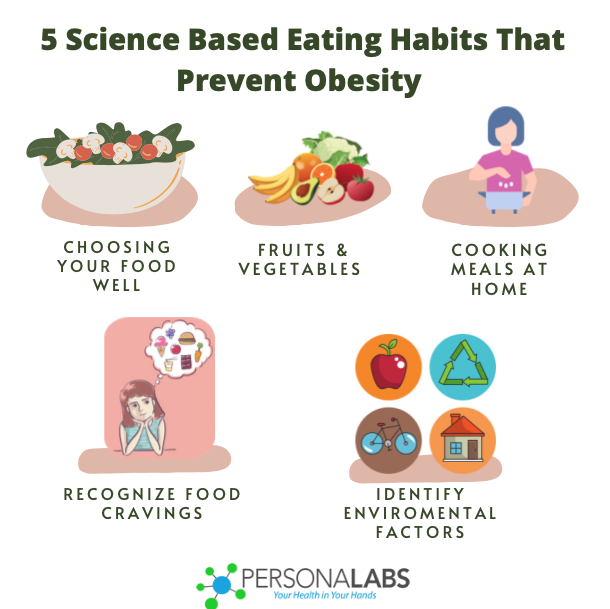- Fast results
- 4,000+ locations
- 4.8 star rating
Need Help? (888) GET LABS


It’s no secret that obesity is a prevalent medical condition not just in the US but across the globe.
Since 1975, cases of obesity worldwide have tripled, especially in first-world countries.
Nevertheless, the global understanding of obesity has expanded over the years. Still, there are over 650 million adults that suffer from obesity.
On the other hand, children’s cases of obesity have increased by 24% during the COVID lockdowns. The data was derived from a study conducted by the University of Michigan and Kaiser Permanente Southern California, where they recorded drastic weight gain among children aged 5 to 11.
Amidst the global crisis brought on by the COVID-19 pandemic, there is no doubt that researchers are still working hard on finding more effective ways to treat obesity.
In the meantime, it is crucial to know that obesity is a preventable disease. Hence, instead of waiting for treatment to come around, it is best to adopt habits that can lead you miles away from obesity.
Obesity is a condition characterized by the abnormal accumulation of excessive fats in the body.
It is closely associated with many health threats that range from diabetes, cardiovascular diseases, hypertension, stroke, osteoarthritis, and sleeping problems. Furthermore, obesity complications often lead to life-threatening conditions or death.
Extreme and uncontrollable weight gain is a clear indicator of obesity. Likewise, your body mass index (BMI) pretty much suggests whether or not you are obese.
According to the CDC, obesity is categorized into three subdivisions:
Naturally, the level of health impairment is determined by the class of obesity you’re at.
On the other hand, if your BMI is below 30 but quite close to this bar, you are not completely off the hook.
Overweight and obesity differ in terms of the minimum and maximum BMIs that define them.
You are considered overweight if your BMI is between 25 to 29.9. On the other hand, for a person to be deemed obese, the BMI should be at 30 or above.
An overweight person has body fats or lipids that go beyond the normal amount but not too much to be classified as obese.
Nevertheless, being overweight can be digits away from obesity. Hence, if your BMI fits the profile, don’t wait until you become obese to do something about it.

Diet is primarily the first health aspect you need to improve if you’re overweight or obese.
It comes as no surprise to everyone that your food choices affect your overall health. But even more so with a metabolic condition like obesity.
The University of Cambridge has conducted several studies on the health consequences of food. Obesity is an expected effect of excessive food intake.
However, it’s not simply the amount of food we’re referring to here. It’s also the type of food consumed. For example, weight gain is triggered by the consumption of food high in sugar and fats.
On the other hand, foods rich in fiber like whole grains, leafy vegetables, and fruits increase metabolism, which speeds up the conversion of sugar to energy. This way, the sugar is utilized instead of being stored as fats.
Knowing how food affects body fat accumulation helps you decide your next grocery list. Food planning is proven to be an effective way to manage weight.
Processed foods have the reputation of containing harmful preservatives that alter your metabolism.
Foods like hotdogs are often discouraged, especially among children, as they have several unhealthy consequences. The same goes for junk foods and fast foods rich in fats, sugar, and sodium.
While it is recommended to exchange processed foods with fruits and vegetables, recent studies suggest it’s not as simple as that. Moreover, there is a chance that even plant-based diets can influence the development of obesity.
McMaster University scientists identified a commonly used insecticide called chlorpyrifos that reduces metabolism in the brown fats of mice. And as we know, the slow-burning of calories leads to the accumulation of fats and, in turn, obesity.
Therefore, it would be a healthier choice to eat organically grown fruits and vegetables as they contain little to zero chemicals that can potentially compromise your health.
As more restaurants and fast-food chains become available in the US, the frequency of cooking meals at home becomes less.
Even with the pandemic lockdown, ordering in became a trend. However, as convenient as out-of-home eating is, it comes with several unhealthy effects.
Studies have supported the notion that frequent eating out is a factor in developing obesity. Food prepared by restaurants tends to have more calories than food prepared at home.
The diversity of food also triggers cravings and impulsive eating. As a result, this activity leads to weight gain, which can escalate to obesity.
Hence, to prevent obesity is to limit eating out-of-home food. Preparing your own healthy meals can significantly lower your risks of obesity.
According to research conducted by the University of Iowa, emotions are linked to the risks of developing obesity.
Emotional or stress eating is a hop, skip, and a jump from habitual overeating. In most cases, overeaters consume food out of boredom, anxiety, sadness, and other negative emotions.
That’s why identifying what triggers your cravings for junk food or unhealthy foods can aid you in planning an alternative approach to deal with such triggers.
Lose all types of food temptations in your home and replace them with healthier ones. Likewise, turn to other activities that manage stress, such as exercise, sports, particular hobbies, and whatnot.
Aside from mood and emotion, your environment can influence your eating patterns.
In a cross-cultural analysis published by Health Promotion International, researchers identified what motivates American and Japanese individuals when it comes to food.
As it turns out, one of the reasons why the Japanese have low obesity rates and the US being part of the top 15 countries with high obesity cases include eating setups.
Watching television, for example, is often accompanied by a meal of popcorn, soda, or other junk foods.
In the US, the invention of tv dinners in the late 40s paved the way to a tradition sustained even today.
You may argue that tv dinners are not as trendy as they used to be, but the association between eating and watching tv is evident.
Unfortunately, eating while the tv is on often comes with unhealthy consequences. Today, whenever people binge-watch series or movies, it always comes with bags of junk foods.
In a study by the Harvard School of Public health, women who spend every two hours of television a day have a 23% higher risk of developing obesity.
With this data, it is clear that how you perceive eating in connection to other activities can critically influence your food intake. So, if these activities push you toward overeating, the most logical thing to do is disassociate.

Obesity is a deadly disease that can be prevented with the right choices. Food intake is a constant factor in treating or preventing this condition.
If you’re gaining weight fast or have succumbed to eating habits that you seem to have zero to little control of, it’s always helpful to seek medical attention.
Likewise, getting an overview of your body’s lipids and cholesterol will allow you to monitor your metabolism.
In some cases, obesity is also influenced by underlying disorders that cause critical imbalances in your body.
Therefore, a regular trip to the doctor’s office and blood tests can get you ahead of any risks for metabolic disorders like obesity.


We now offer pharmacy discounts through our PersonalabsRx platform.
We now offer pharmacy discounts through our PersonalabsRx platform.